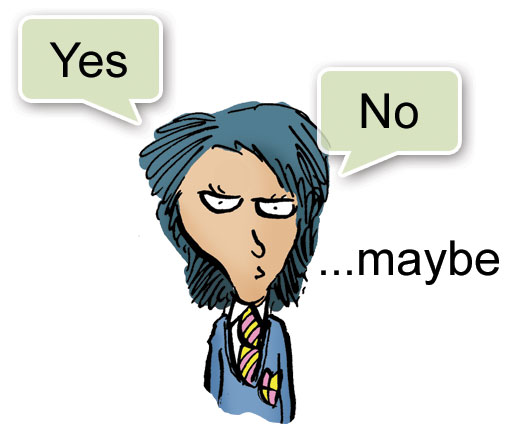Different types of explanation
Can a ‘Why?’ question have more than one right answer?
 Questions that start with ‘Why’ are such interesting questions. Do all the best questions start with ‘Why?’ “Why do we need to sleep?” “Why do birds sing?”, “Why are leaves green?”, “Why are laughing?” …
Questions that start with ‘Why’ are such interesting questions. Do all the best questions start with ‘Why?’ “Why do we need to sleep?” “Why do birds sing?”, “Why are leaves green?”, “Why are laughing?” …
Science and Religion both offer answers to Why questions but they each mean something different by ‘Why’ and they each come up with different types of answers. It makes more sense if we move to a different example.
Why do the raisins rise up and fall down?
Here’s a challenge. When you put raisins into lemonade, something remarkable happens. Play the video and see for yourself. Then see if you can explain why the raisins dance.
Which of these explains why the raisins are rising and falling…
Reason 1: It’s because someone put raisins and lemonade into a glass to see what would happen.
Or …
Reason 2: It’s because air bubbles from the lemonade gather on the raisins. That lifts them up to the surface but there, the bubbles pop. The raisin flips over, because it has bubbles on its underside. Those bubbles pop and the raisin falls.
Or …
Could BOTH explanations be right – even though they are different?
A ‘Why?’ question can often be answered in several ways – and these different answers may work well together if they are different types of explanation.
Why is the hot chocolate hot?”
 Can you think of more than one way to explain why this hot chocolate is hot? Can some of your explanations be right at the same time? What about for example – “it’s hot because the microwave heated it up” and “it’s hot because my brother made it and he likes it extra hot.”
Can you think of more than one way to explain why this hot chocolate is hot? Can some of your explanations be right at the same time? What about for example – “it’s hot because the microwave heated it up” and “it’s hot because my brother made it and he likes it extra hot.”
Why did the Titanic sink?
Here’s one more example –
 “Why did the Tit
“Why did the Tit anic sink?”
anic sink?”
One answer is, “because its captain, Captain Smith refused to listen to warnings by other ships that there were icebergs in that area and also because the shipbuilders had used substandard rivets (nails) along the seams of some of the panels.”
Another answer is, “because the ship was travelling fast when it struck the iceberg and the impact was enough to snap some of the rivets and rip the Titanic apart.”
These two answers can work together because one answer tells you “why – for what reason?” and the other tells you, “Why, in what manner”.
Applying this ‘How and Why’ idea to science and religion
Now let’s see how this idea can be applied when thinking about the question, ‘Why do humans exist?’. According to supporters of Theistic Evolution (the name given to this approach) the answer is that God created life, but He did so using natural processes which are open to scientific investigation.
In the video below, astronomer, Dr Jennifer Wiseman and Physicist, Prof Jim Al-Khalili explain further.
In your view, what does the Creation story tell us:
Theistic evolution is a term used to describe the view that God created life on Earth using processes that we can investigate using science. Supporters of Theistic Evolution argue that when the Bible says the Universe was created in six days, this is a poetic expression, not a factual statement.
Atheistic evolution is a term used to describe the view that there is no God. The idea is that there doesn’t need to be a God to explain why everything exists.
Creationism is a term used to describe the view that the Universe was created step by step the way the Bible tells us. Many people who hold this view say the Universe was created in six days.